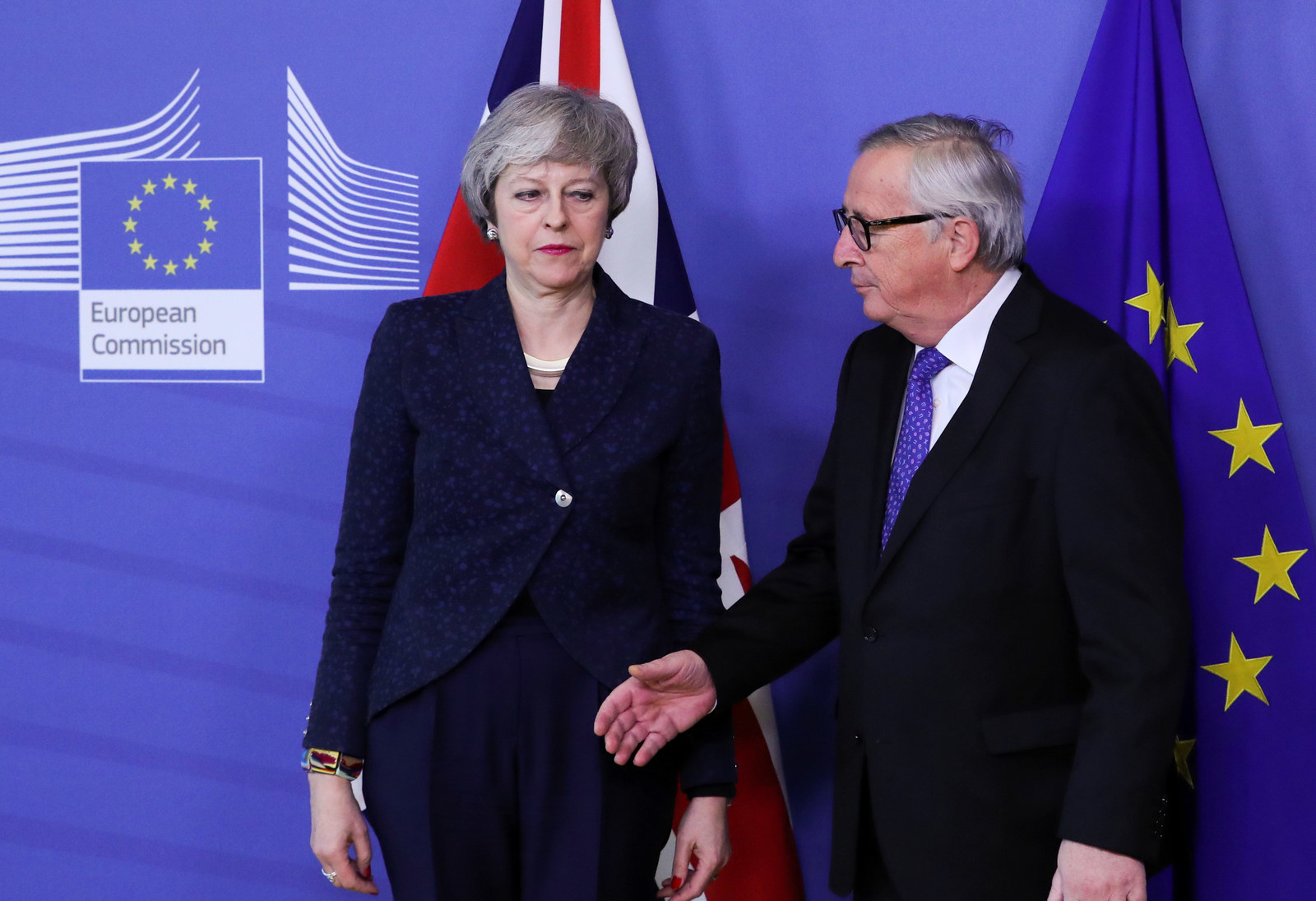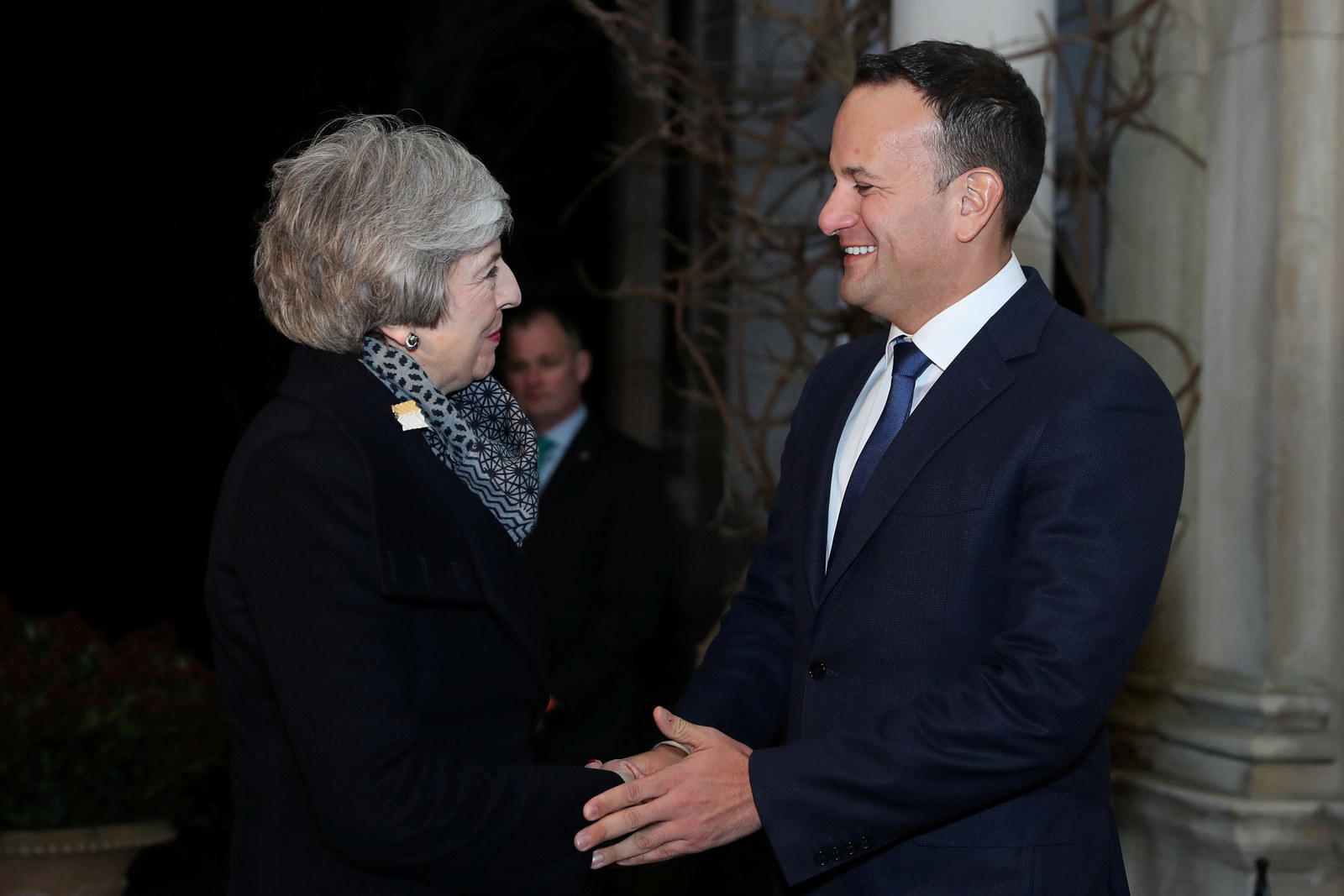
Theresa May’s strategy to get out of the current Brexit impasse is to simply "buy time" and pressure MPs to reach a consensus in Westminster, according to the private assessment of a senior diplomat from a major EU member state.
The assessment, which BuzzFeed News has seen, is contained in a confidential note prepared by the diplomat for their capital following a briefing on Friday.
The note describes upcoming talks between the European Commission and the UK, as “effectively just about buying time, to give May the possibility over the coming weeks to continue her ‘cross-party’ work in Westminster to seek a possible majority in parliament.”
May needs this, the note adds, “to be able to tell Westminster that there is a ‘process’ in Brussels that her government is working on.” A first meeting between Michel Barnier, the EU’s chief Brexit negotiator, and Steve Barclay, Britain’s Brexit secretary, is scheduled for next week.
I am looking forward to meeting @SteveBarclay in Brussels on Mon evening. I will listen to how the UK sees the way through. The EU will not reopen the Withdrawal Agreement. But I will reaffirm our openness to rework the Political Declaration in full respect of #EUCO guidelines.
The prime minister and the European Commission president, Jean-Claude Juncker, will then meet before the end of the month to take stock of the talks.
May is under intense pressure to find a new path forward after MPs voted in favour of the Brady amendment last month, which rejected the terms of the current backstop, and went to Brussels this week seeking a legally binding alternative. This, the UK says, could include a unilateral exit mechanism, the introduction of a clause to time-limit the backstop, or ways to replace the backstop with as yet undefined “alternative arrangements” that avoid a hard border between the Republic of Ireland Ireland and Northern Ireland.
The backstop is an insurance policy in the withdrawal agreement negotiated by the UK and the EU that guarantees that there can be no hard border under all circumstances.
EU leaders have remained adamant that the withdrawal agreement cannot be reopened. “We will not gamble with peace; or put a sell-by date on reconciliation. And this is why we insist on the backstop,” Donald Tusk, the president of the European Council, told reporters on Wednesday after meeting Ireland’s Taoiseach, Leo Varadkar.
MPs have reacted angrily to the EU’s unwillingness to contemplate a change in their long-held position. The diplomatic note seen by BuzzFeed News notes that the backstop is not only a bilateral UK-Irish issue, but a European one, as the Irish border will become the external border of the EU and the single market after Brexit.
Some MPs have suggested that not even a legally-binding time-limit would win their support. They want to see the backstop binned all together.
However, the feeling in Brussels is that London’s problems go beyond the backstop. “There is scepticism that even if something different were on the table, London would have the necessary capacity and reliability to negotiate with the EU,” the note says. “To this, there is the additional fact that May has not put forward any concrete idea in regards to the so-called ‘alternative arrangements’.”

An EU source told BuzzFeed News that at a meeting on Thursday between Tusk and May, the prime minister “did not offer any new concrete proposals on the way forward”. At the same meeting, Tusk suggested that Jeremy Corbyn’s Brexit plan “could be a promising way out of the impasse”.
In a letter to the prime minister on Wednesday night, Corbyn offered new terms for a deal that he said the Labour party would be willing to accept. Dropping Labour’s previous demand that the government secures the “exact same benefits” as the membership of the EU’s single market after Brexit, Corbyn indicated he would back a deal if it delivered a permanent customs union, “close alignment” with the single market, protections for workers’ rights, participation in EU agencies and funding programmes, and agreements on future security arrangements.
However, the European diplomat is sceptical that Corbyn’s proposal will make much inroad into May’s thinking, “at least at this stage". “She appears ‘very jealous’ in wanting to preserve her current parliamentary majority", they said.
The diplomatic note repeats two possible offers the EU has made to the UK: changes to the political declaration that outlines the future UK-EU relationship – “if there is movement on UK ‘red lines’” – or strengthening the assurances provided in the letter Juncker and Tusk sent May in January. “However, this [the strengthened assurances] would not change the substance of the package on the table,” the note says.
It also reaffirms that the EU will continue to operate on the basis of the mandate set out by the 27 governments. “For Brussels the ball is in the British court. And we are waiting for a majority to be built in London around the existing package because it is the only deal that is practically possible, and [it is] not renegotiable.”
The note says that “substantive progress is not expected in the next few weeks.”

Ambassadors of the EU’s remaining 27 member states were told on Friday morning at a debriefing session with senior EU officials that, contrary to some reports in the British press, no special Brexit summit is expected in the coming weeks – unless there was a substantial change in circumstances.
They were also told that May had indicated that she had no immediate plans to ask for an extension to Article 50, the two-year framework that will see the UK leave the EU on March 29 with or without a deal.
The senior diplomat’s assessment is that this was a “tactical” move based on “the calculation that, at this stage, weaken pressure on Westminster and the effectiveness of ‘consensus building’ efforts.”
However, the note goes on to say that if May gets a consensus in parliament by the next European Council, scheduled for 20 March, “she would probably, if not necessarily, be forced to ask for a a technical extension for the time needed to approve necessary Brexit legislation.”
“Only then, and once there is a majority in Westminster, would the ball be back with the European Council,” it adds.
The assessment concludes with a sombre warning: “If there are no developments by the March European Council, the risk of ‘no deal by accident’ will increase.
“The ‘no deal by accident’ scenario would become ever more concrete. ‘Preparedness’ [for no deal] over the next few weeks must therefore obviously continue.”
The European Commission did not respond to a request for comment.
